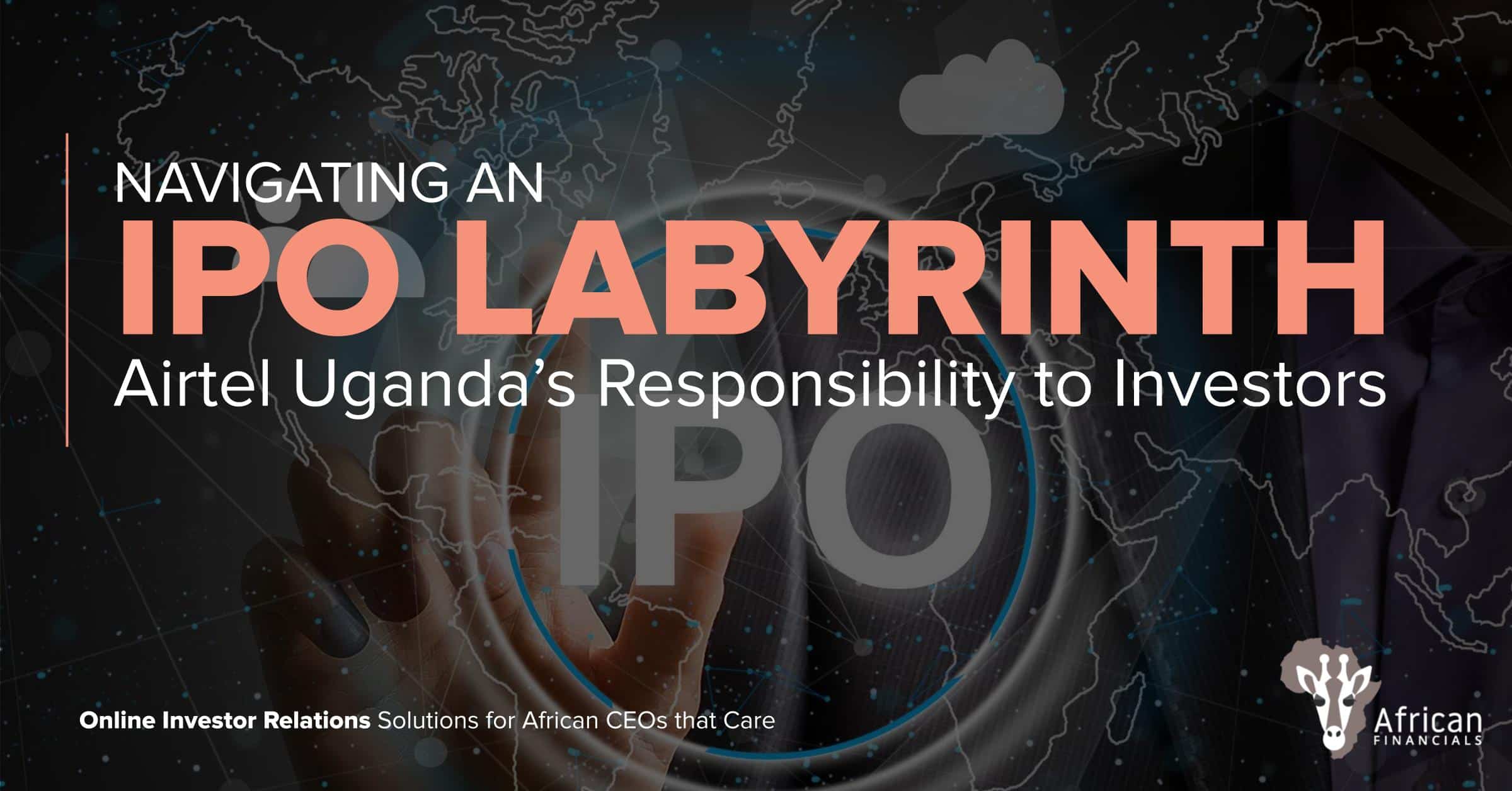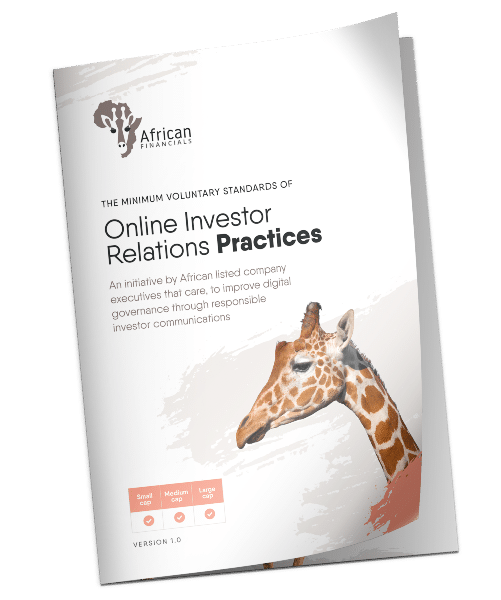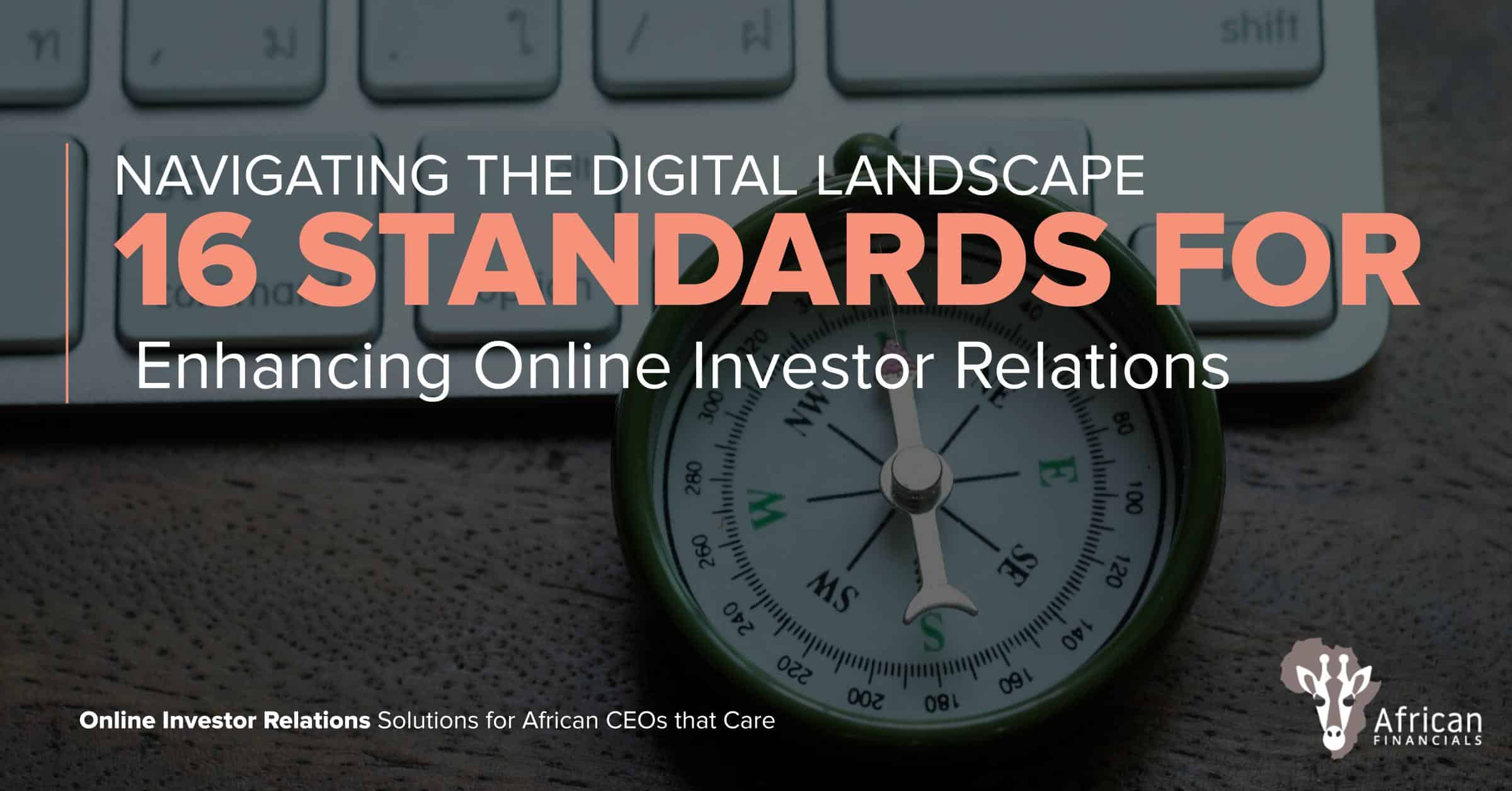
Introduction: The IPO Spotlight
Initial Public Offerings (IPOs) are pivotal for companies, marking their transition into the public domain. With immense attention from the public and potential investors, companies face a maze of expectations and responsibilities. Striking a balance between maximising capital for the company (or main shareholders in Airtel Uganda’s case) and ensuring successful returns for investors can be challenging. This article outlines the pillars of a successful IPO and how AfricanFinancials can be instrumental in this journey.
The 15 Pillars of Airtel Uganda’s IPO
Airtel Uganda recently launched its IPO. It’s arch rival, MTN Uganda’s current share price remains below it’s IPO price. How will Airtel Uganda’s IPO compare with MTN Uganda’s? And what does the company need to get right?
- Clarity in the Investment Case
Airtel Uganda’s IPO should present a clear, concise, transparent investment narrative. It’s essential to keep it simple, avoid overhyping, and ensure potential investors understand the company’s value proposition (and valuation). It’s all very well getting the message across, but at the end of the day, it’s about pricing. - Adherence to Legal Obligations
Full compliance with legal and regulatory standards is non-negotiable. It ensures Airtel Uganda’s integrity and builds trust with investors. Sadly, Airtel Uganda’s prospectus is left wanting regarding certain disclosures. Key questions on omissions- Why have no valuation parameters been disclosed in the prospectus?
- Why is there no underwriting to underpin market demand?
- Why is there no mention of the MTN IPO performance (after saturation of demand)?
- Why is there no mention of the USE’s ability to absorb capital?
- Why is there no mention of the forced sale of the company’s 20% and the impact this has on the market?
- Complete Financial Transparency
Airtel Uganda should ensure that the IPO proceeds, directed to the selling shareholders, are transparently received and accounted for. - Confidence in Underwriting
Underwriting boosts market confidence and signals a positive outlook. Airtel Uganda’s IPO is not underwritten, and no reason why is stated, leaving the IPO open to under-subscription and the selling shareholder keeping their shares. - Equity in Share Allocation
It’s crucial to ensure that retail shareholders are allocated shares fairly, promoting widespread ownership and market trust, BUT only if the pricing of the IPO and valuation of the company is structured for success. In Airtel Uganda’s IPO, it is not. Retail shareholders are set to suffer the same fate as MTN Uganda’s shareholders. - Institutional Participation
Institutions’ return to buy more shares after IPO can indicate positive market sentiment. But not if institutional investors buy shares in Airtel Uganda after the IPO at a price lower than the IPO price, which they will. - Authentic Demand Dynamics
Avoid artificial mechanisms that might distort share prices, like offering free shares (which Airtel Uganda has done). Authentic demand and supply dynamics should dictate pricing both pre and post-IPO. The forced sale of 20% of the share capital has distorted the market dynamics. - Streamlined Investor Processes
Processes should be smooth and transparent, ensuring no financial prejudices against investors. The extended IPO open period allows marketing campaigns to build false narratives and expectations. - Open Allocation Policies
While there should be guidelines for share allocation, policies shouldn’t be so restrictive that they deter potential investors. - Promising Earnings Outlook
Projected earnings should ideally outperform the current year, offering potential investors a promising return on investment. Tick. - Image Enhancement
This IPO should significantly boost Airtel Uganda’s public image. But only if the share price rises. Significant efforts are being made to ensure positive branding during and post-IPO. Ultimately, it all depends on the share price. - Post-IPO Trading Health
A rising share price post-IPO and active trading indicate a successful listing and robust market interest. Expect to see the opposite in Airtel Uganda’s case. - Effective Direct Communication
A direct investor email list paves the way for transparent communication, crucial for post-IPO engagement. Particularly if the IPO fails (is under-subscribed). I am unable to locate any direct signup communications from Airtel Uganda’s IPO website. - Structured Investor Engagement
Publicly laying out a defined framework for investor (and stakeholder) interactions pre-, during, and post-IPO ensures consistent and productive engagement with stakeholders. - Proactive Investor Relations
Active investor relations post-IPO is key to maintaining trust, interest, and shareholder engagement. How will this be done when the share price is significantly lower than the IPO share price will be a significant challenge for the communications and IR department of Airtel Uganda.
AfricanFinancials: A Partner in Your IPO Journey
A successful IPO demands a strategic approach, and AfricanFinancials stands ready to assist:
- Communication Channels: Our platform can facilitate the creation of direct investor email lists, ensuring clear communication with stakeholders.
- Market Analysis Tools: AfricanFinancials offers robust analytics and insights, helping companies gauge market sentiments and adapt their strategies.
- Investor Engagement Solutions: We can streamline and enhance your post-IPO investor relations efforts with tools designed for effective stakeholder engagement.
Conclusion: The Art and Science of a Successful IPO
While the road to a successful IPO is intricate, understanding and implementing the above pillars can make the journey smoother. With AfricanFinancials as a partner, companies can be better equipped to navigate the complex landscape of public listings, ensuring they meet their responsibilities to investors and achieve IPO success.
THE MINIMUM VOLUNTARY STANDARDS OF
Online Investor Relations Practices
Building effective online investor relations in emerging African markets presents unique governance challenges for public companies. Our guidelines aim to help these companies leverage their stock exchange listings and overcome communication hurdles.
Get a Copy



